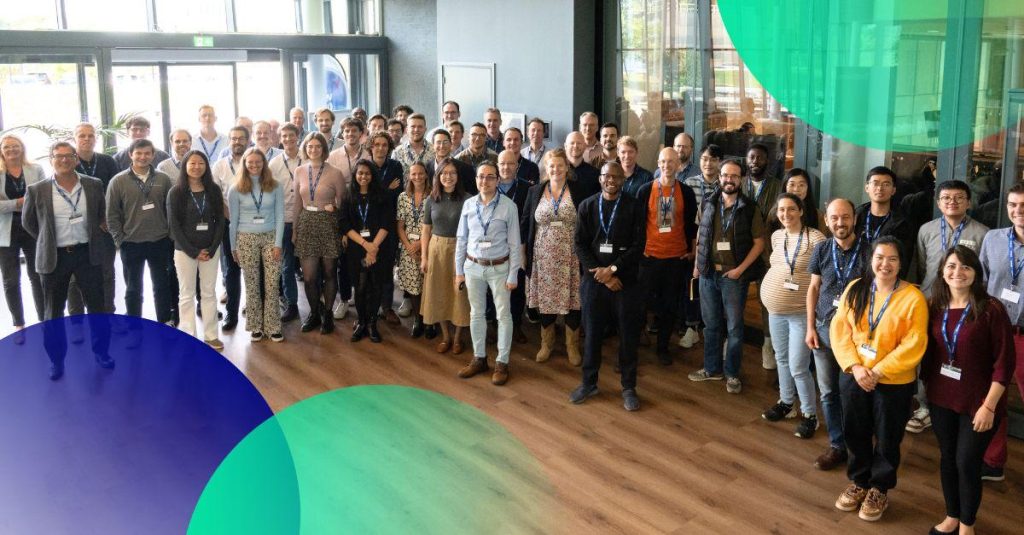Knowledge and innovation key at flood modelling symposium
Last week, Deltares organised a symposium in Delft on the 'Emulation of 2D flood modelling: exploring deep learning techniques and low-fidelity approaches'. Expectations were high given the growing interest in advanced ways of modelling floods. The symposium was attended by representatives from across the industry, including academia, universities, market parties, and policymakers.

New technologies offer new opportunities
While most flood models are based on physics, recent years have seen an emergence of new technologies that can contribute to the speed, precision, and effectiveness of flood models. These include machine learning and Artifical Intelligence (AI) techniques, such as 'graph neural network' and Long Short-Term Memory (LSTM), as well as reduced-order or low-fidelity approaches, which greatly simplify complex physics.
In a world where the climate is rapidly changing and floods are becoming more frequent and devastating, forecasting models and early warning systems are more relevant than ever. These systems, including well-known models such as D-HYDRO/Delft3D FM 1D2D, SFINCS, HEC-RAS, TUFLOW, 3Di and MIKE11, as well as the Delft-FEWS early warning system, play a crucial role. These advanced approaches offer new opportunities to meet the growing challenges of flood management.
Future of flood modelling
In recent years, deep learning techniques and low-fidelity approaches have been increasingly applied in research on simulating 2D flooding processes. These methods are often compared with numerical models such as Delft3D-FM. These numerical models are often also used to provide training and test datasets for these methods. This symposium, which formed part of the Delft Software Days - Edition 2023), featured several speakers who presented their recent research.
With growing urbanisation and climate change, floods can have an increasing impact on urban activities.
Application of Urban Nowcasting to flood models provides lightning-fast data on what the consequences of flooding are during heavy rainfall in densely populated areas
Mees Radema, consultant and researcher Operational Water Management, Deltares
Innovation and collaboration
Deltares recognises the growing importance of these new technological approaches, also in flood modelling. As a leading knowledge institute, our knowledge is the foundation of all our work; we want to continuously innovate. In this rapidly changing field, joining forces and knowledge with experts, universities and organisations is essential. Together, we create better and more accurate models and build a deeper common understanding. And most importantly, we strengthen our joint mission to provide society with optimal protection against the negative consequences of flooding.
Leon Besseling, expert on dykes and Flood Forecasting at the University of Twente, showed how machine learning can be used in flood modelling of a dyke breach, especially when relevant data needs to be delivered quickly in emergency situations. He stressed that developments in training these models are so rapid that within a few years we will also be able to include system uncertainties in probabilistic analyses during flood events. This will make flood models significantly more flexible in their applicability.
Machine learning is increasingly able to use models to quickly visualise the consequences of flooding in a levee breach
Leon Besseling, expert on dykes and Flood Forecasting, University of Twente
Deltares is fully committed to integrating the latest technologies and approaches in flood modelling. We continue to invest in research and cooperation with experts, universities and organisations to increase the resilience of communities to flood risks.
Want to contribute?
Do you also want to contribute to innovation in the world of simulation and water management, and to discover how to enrich and share your expertise with like-minded professionals? Join our Deltares network and participate in the Delft Software Days. Whether you are interested in workshops, symposiums, or user days, these events offer valuable knowledge and networking opportunities.


